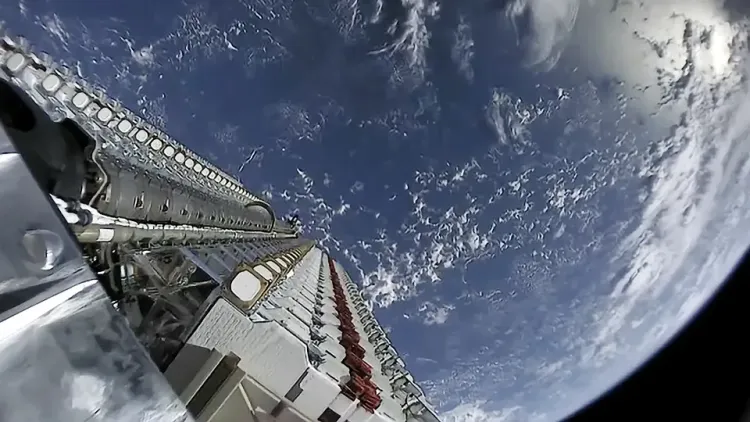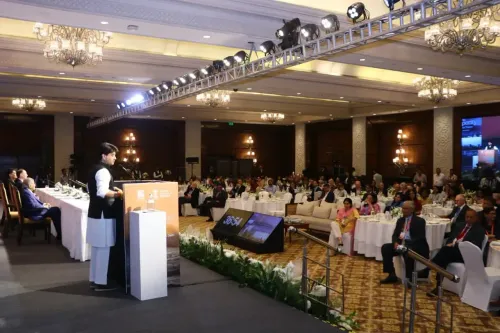Who Will Dominate India's $2.3 Billion Satcom Market Boom?

Synopsis
Key Takeaways
- Global competition is heating up in India's $2.3 billion satcom market.
- Projected growth to $20 billion by 2028 presents significant opportunities.
- New partnerships are forming to enhance service delivery.
- Direct-to-cell communications are strengthening the market.
- Government approvals are crucial for operational success.
New Delhi, Aug 13 (NationPress) Numerous global satellite operators, including Intelsat and SES from Luxembourg, along with Inmarsat from the UK, are competing for a slice of India's booming $2.3 billion satellite communication market, according to various media reports.
The competition also features companies like Singapore Telecom, KT SAT from Korea, IPSTAR from Thailand, and PT Telekomunikasi from Indonesia, all of whom are expanding their satellite capacities to capitalize on India's rapidly expanding satcom sector, which is estimated to reach $20 billion by 2028.
These firms are forming alliances to build resale capabilities with larger satcom operators who aim to deliver broadband-from-space services to millions of consumers across India.
This strategic move is crucial as they seek to rival Elon Musk's Starlink, the leading global satcom provider boasting a constellation of 7,578 satellites.
Currently, India has granted necessary approvals to Starlink, the Reliance Jio-SES joint venture, and the Bharti Group-backed Eutelsat OneWeb to provide satcom services within its borders. Additionally, Amazon’s Kuiper and Apple'sGlobalstar have also applied for the required permits.
The recent introduction of direct-to-cell communications, allowing satellites to send signals directly to mobile devices, has further bolstered the expanding satcom market in India.
In this context, Tata Group's Nelco has recently partnered with Eutelsat to provide OneWeb low Earth orbit (LEO) satellite connectivity throughout India.
Nelco has also incorporated the Koreasat-7 satellite into its portfolio for operations in the Ku-band, according to regulatory filings.
This satellite is managed by KT SAT, a subsidiary of KT Corp, which is South Korea’s leading telecom services provider and the sole satellite service operator in the country.
In a similar vein, Intelsat, which was acquired by SES this year, has added the Intelsat 36, 17, 20, and 39 satellites for C band operations.
SES is already in a joint venture with Jio Platforms but is also strengthening its individual presence through its Indian subsidiary, as reported.
The US-based Viasat, which took over the British satcom company Inmarsat in 2023, has recently integrated Inmarsat satellites aimed at the Indian market.
These collaborations come at a time of increased activity in India's satcom landscape.
The launch of broadband-from-space services is anticipated to commence later this year, pending the government’s allocation of spectrum to authorized companies, according to reports.









